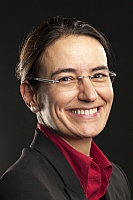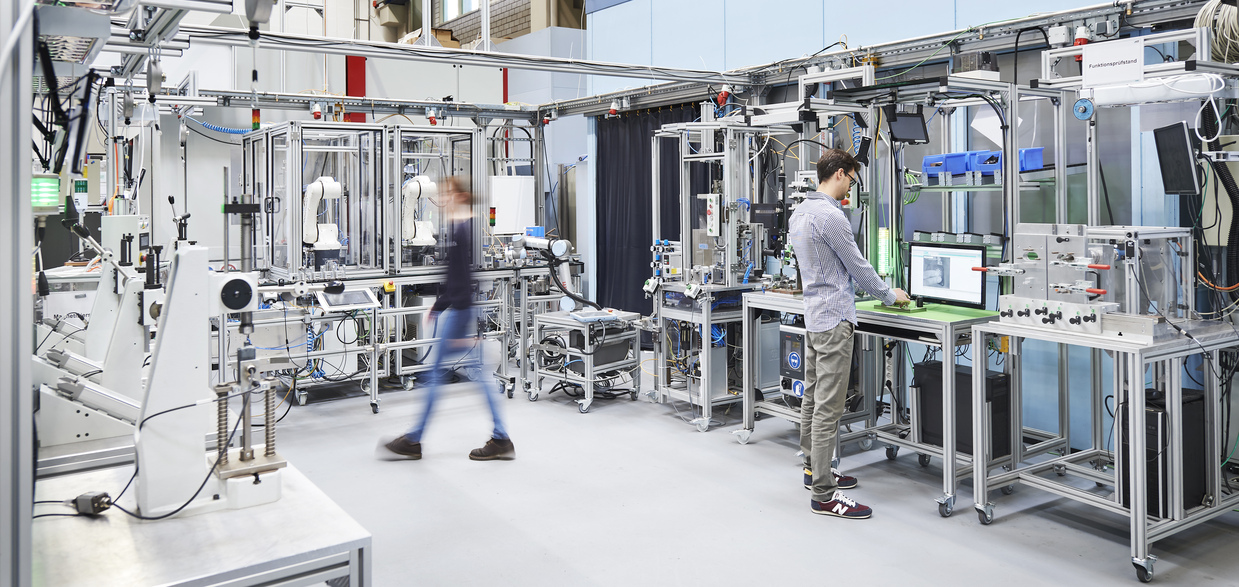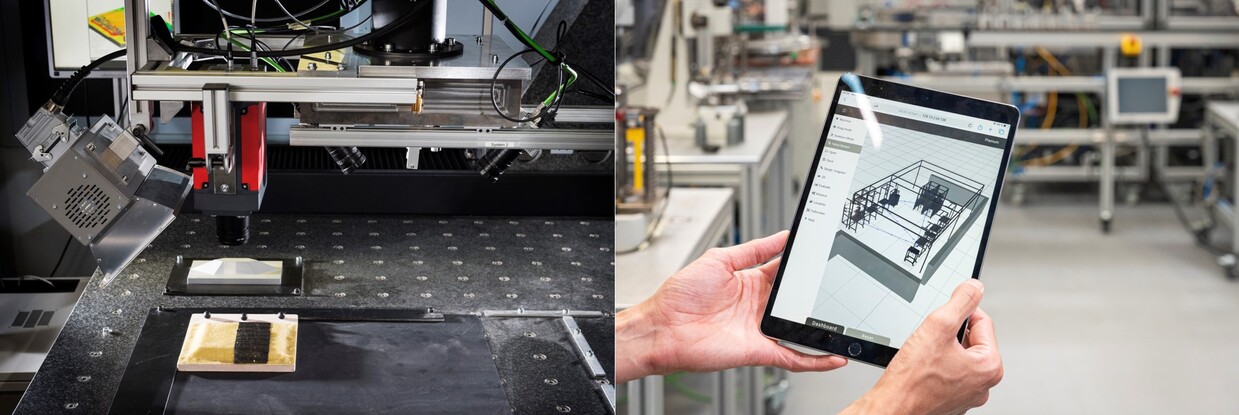Methods and Processes in Design and Production
Introduction
Researchers focus on systematic and integrated product, process and production design for the mobility of the future.


Increasing complexity and diversity of variants due to individualization as well as resulting low volumes lead to a stronger fusion between product, process and production design in a global network. Approaches in planning, evaluating and regulating the production of tomorrow, i.e. agile production systems with robust processes in a global, digitalized production environment, are considered. The production of components for the mobility of the future poses new challenges for production technology in the areas of production system planning and quality assurance. Remanufacturing, i.e. the reprocessing of old parts, and central aspects of sustainable production are also part of the research topics that are pursued in close coordination with component development and its methods.

Research Focus

Design
In design, methods are used for cross-disciplinary and cross-domain development of complex processes, production systems and product generations as a System of Systems. Machine learning methods support product development and parameter-intensive production processes as well as rapid commissioning of new, immature production technologies. An end-to-end digital process chain from CAD design to automated derivation of machining programs is being pursued. Demand-driven methods support the development and design of innovative mobility solutions, taking into account high-performance materials and new manufacturing processes. Furthermore, the topic is working on development and validation methods for electromobility and highly automated driving.
Production System Planning
On location level, production networks must consist of agile and robust systems/factories that quickly adapt to the dynamic production environment and changing mobility products of the future. This adaptability is gaining new momentum through Industry 4.0. The rapid availability of information not only leads to greater transparency, but can also be used, for example with artificial intelligence methods, for forecasting and autonomous response. Another focus is on technology foresight of immature manufacturing technologies, such as additive processes, as well as decision support systems that support targeted product-production co-design.
Quality Assurance
In order to control the highest process quality, especially in immature manufacturing processes, for example for the production of fiber composite components, battery and fuel cells as well as additively manufactured components, the institute is intensively involved in the development of process-related and process-integrated measurement technology. This enables the detection of potentially defective components early in the manufacturing process and the implementation of appropriate measures (e.g. adjustment of process parameters). Various sensors, such as microphones or cameras, are used as measurement techniques. The principle of data fusion of different sensors and the integration of prior knowledge into the automated measurement data evaluation are promising for the improvement of the measurement technology. The measurement results obtained are used to implement intelligent quality control loops in order to increase the economic efficiency and resource conservation of the processes.
Associated Institutes
ETI - Institute of Electrical Engineering
IFM - Institute of Mechanics
IIP - Institute for Industrial Production
IMVT - Institute for Micro Process Engineering
INT - Institute of Nanotechnology
IPE - Institute for Data Processing and Electronics
IPEK - Institute of Product Engineering
